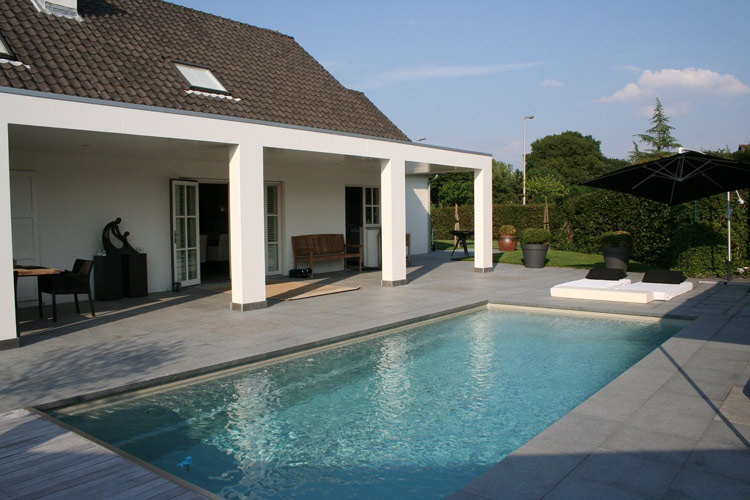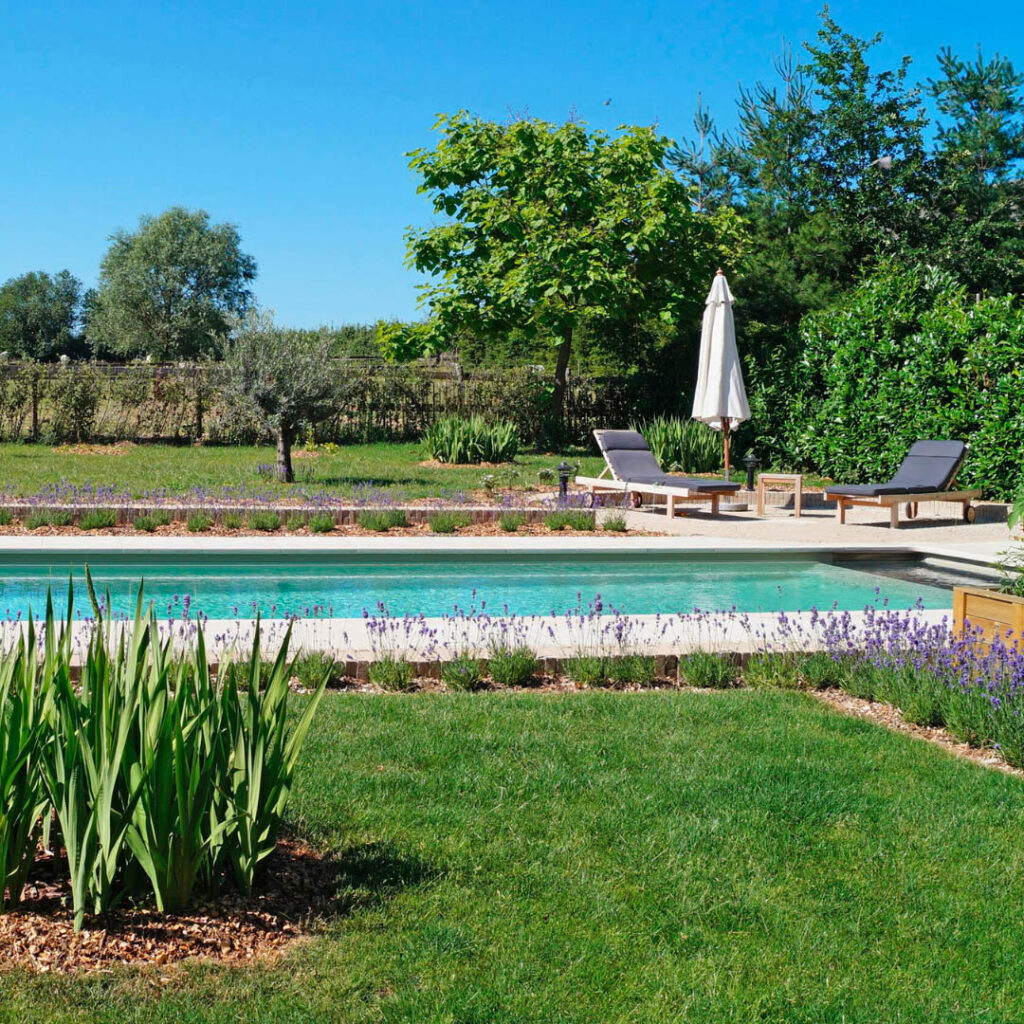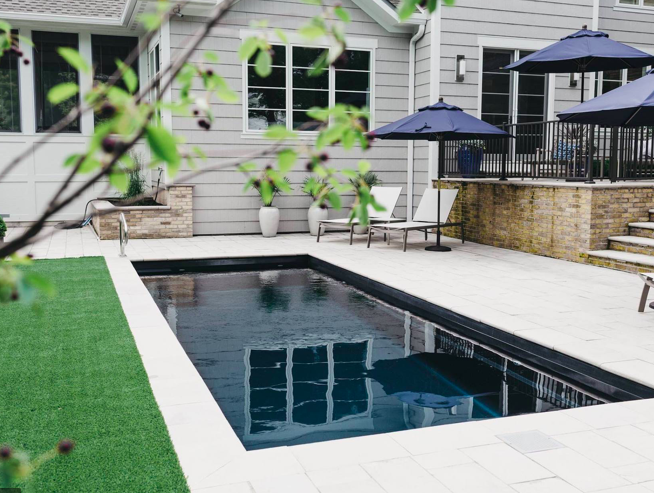Home > >
Leisure Pools is the proud inventor of the Zero Energy Pool. Our wireless system, based on the LoRa (Long Range) radio protocol, intelligently manages energy and communicates with the technology in your home.
Did you know that only 37% of the solar energy produced is actually used? During the day, when solar panels generate the most electricity, we’re often away from home. Leisure Pools uses this surplus to heat your pool in an energy-efficient way.
The system uses a transmitter connected to the P1 port of the digital meter and a receiver installed in the control cabinet.
Combined with a heat pump, your pool becomes a thermal battery, saving energy while allowing you to enjoy warm water year-round!
A heat pump is the best and most economical way to heat a pool. No wonder it is the most popular pool heater in Belgium. This is because a heat pump extracts heat from the environment and then adds it to the pool water. Although purchasing them is a bit more expensive, you will quickly recoup this cost. In fact, a heat pump uses very little electricity. Therefore, the payback period is also much lower than for other heat sources. For a swimming pool, the air-water heat pump is the most interesting way to heat the water.

With a quality heat pump combined with good pool covers, you’ll spend about 650 euro per year on heating costs for your pool. This if you swim when it is warmer than 10°C outside. Do you prefer year-round swimming? Then you can use a heat exchanger during the winter months.
A heat exchanger transfers heat from an external heat source, such as a central heating boiler, a solar water heater or even a heat pump, to the pool water. As the hot and cold water flow in the heat exchanger in opposite directions, a heat exchange takes place. For example, the hot water from the central heating boiler transfers heat to the cold pool water without coming into contact with each other. This technique is ideal for people who want to heat up their pool quickly. In just one day, the entire pool is warmed up and you can enjoy it.

Because the heat exchanger is connected to the existing heating system, it is inexpensive to install. Nevertheless, the consumption cost with a heat exchanger is very high. If you only heat the pool this way, you are guaranteed to get a painful energy bill afterwards. Moreover, this pool heater is less ecological, something we consider a lot these days anyway.
As a final option, you can also heat the pool with wood. The pool water passes by the wood stove, taking with it the heat coming from the fire. However, its operation and operation is quite labor-intensive, as it requires constant addition of wood. Moreover, wood is not cheap. This type of pool heater can be used in smaller pools that are used occassionally.

The technical pallet features a simple digital button with several options for heating your pool: as fast as possible, ecological or, of course, zero-energy. The latter is what it is all about.
PLC control allows the pool devices to communicate with the smart meter. Thus, the excess energy is used to heat the pool water and YOUR pool acts as a thermal battery. You then heat your pool for free.
A buffer is built up that is several degrees warmer than the temperature you are aiming for. Then, when the outside temperature drops, the water’s heat will be better retained. It is important, however, that you have a well-insulated pool so that the heat cannot escape. As the optimal cover for the pool, ideally you should choose solar slats. These keep the water extra warm using their greenhouse effect. This technique is also applied to existing pool installations.


Once the pool water has warmed up, it is important to keep the water warm for as long as possible and ensure that the heat cannot escape. This is why we always recommend our clients to cover the pool with an automatic roller shutter. This causes the pool water to cool less quickly, saving you energy. Moreover, if you choose solar slats, the temperature of the water rises even when you are not using the pool on sunny days. In short: only advantages!
Any questions about pool heating? Contact us!
